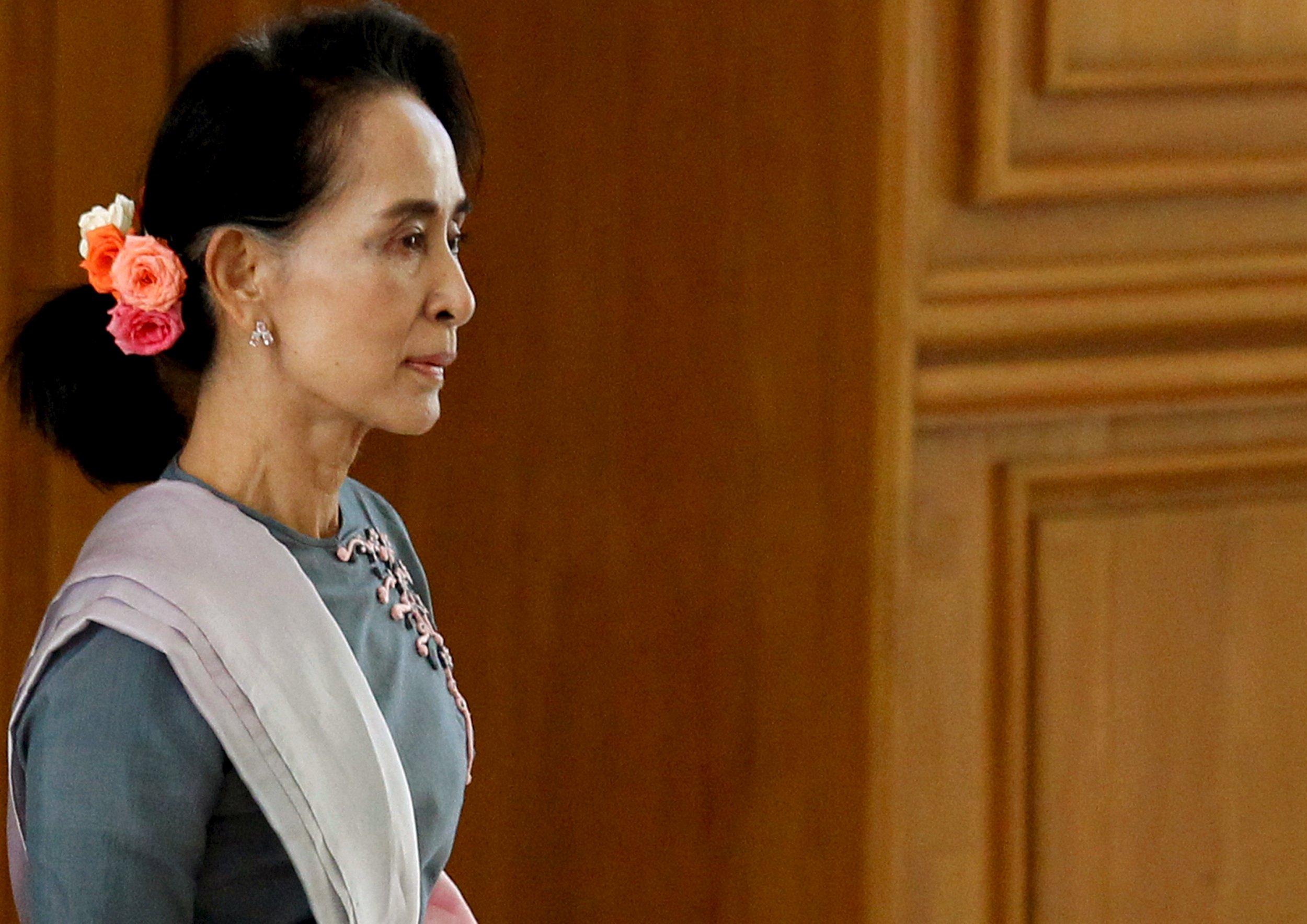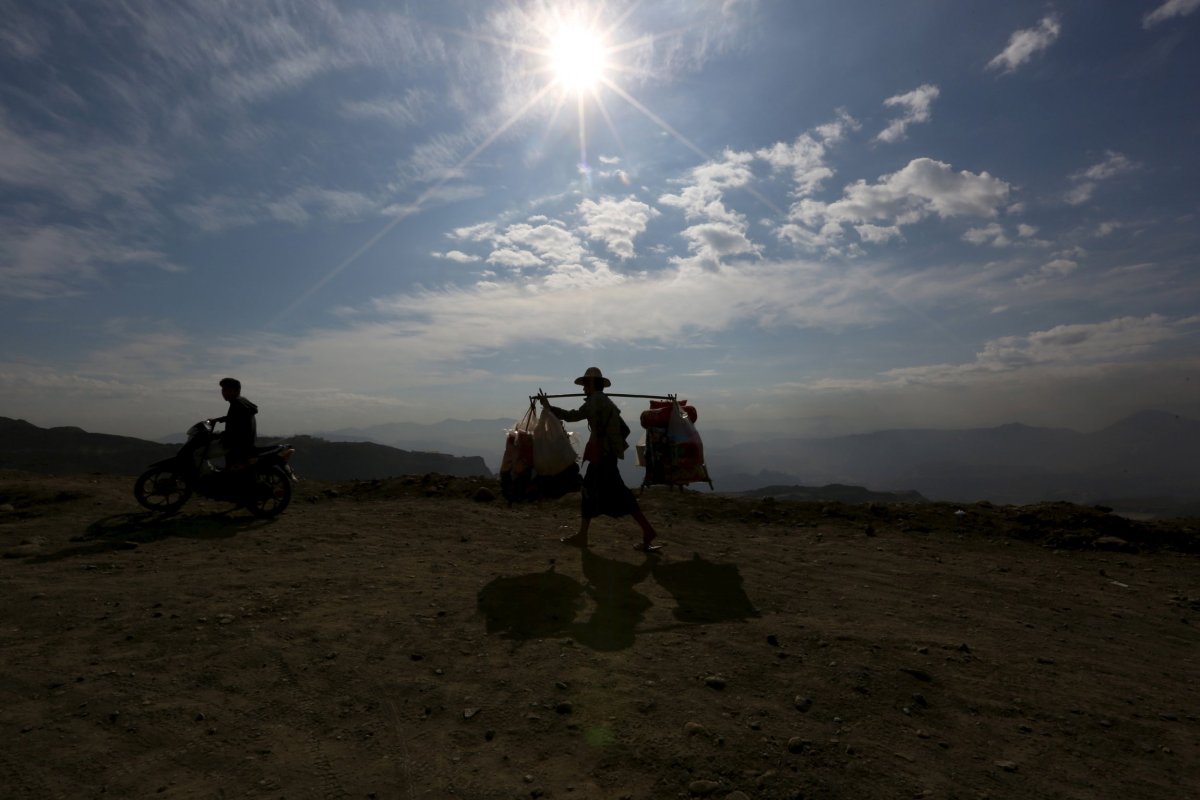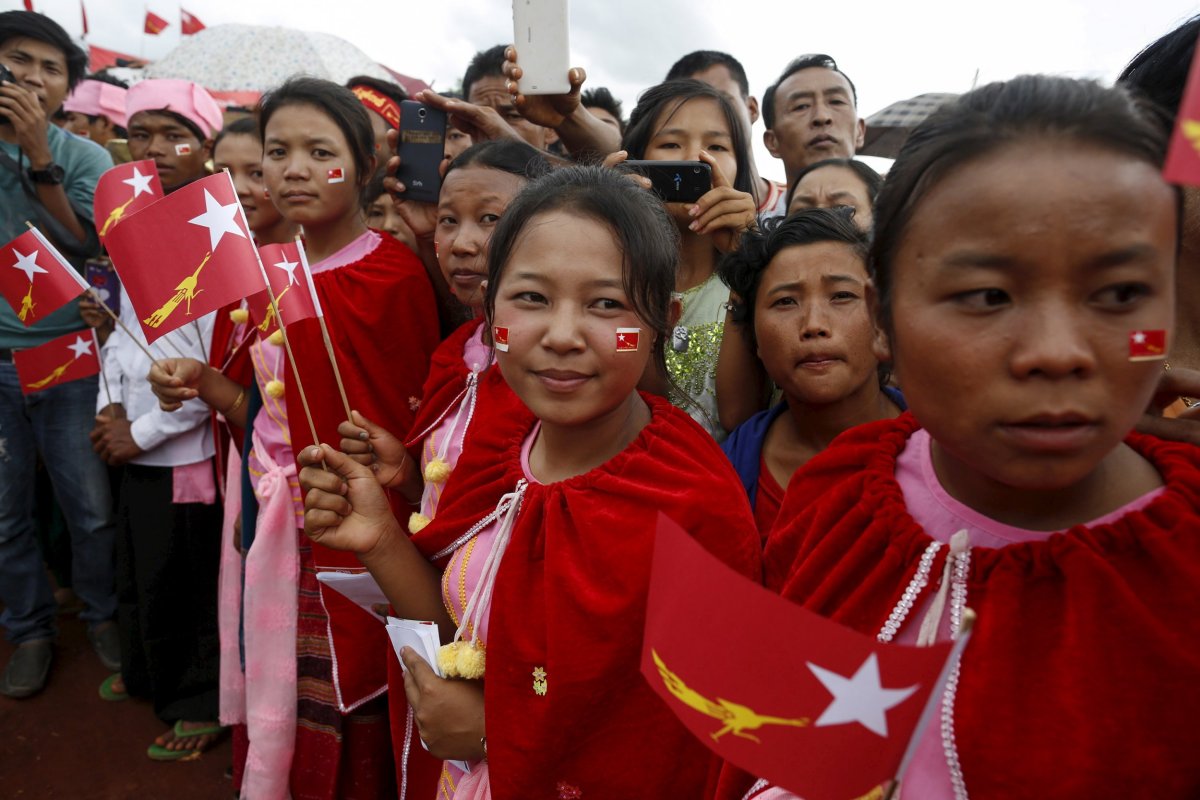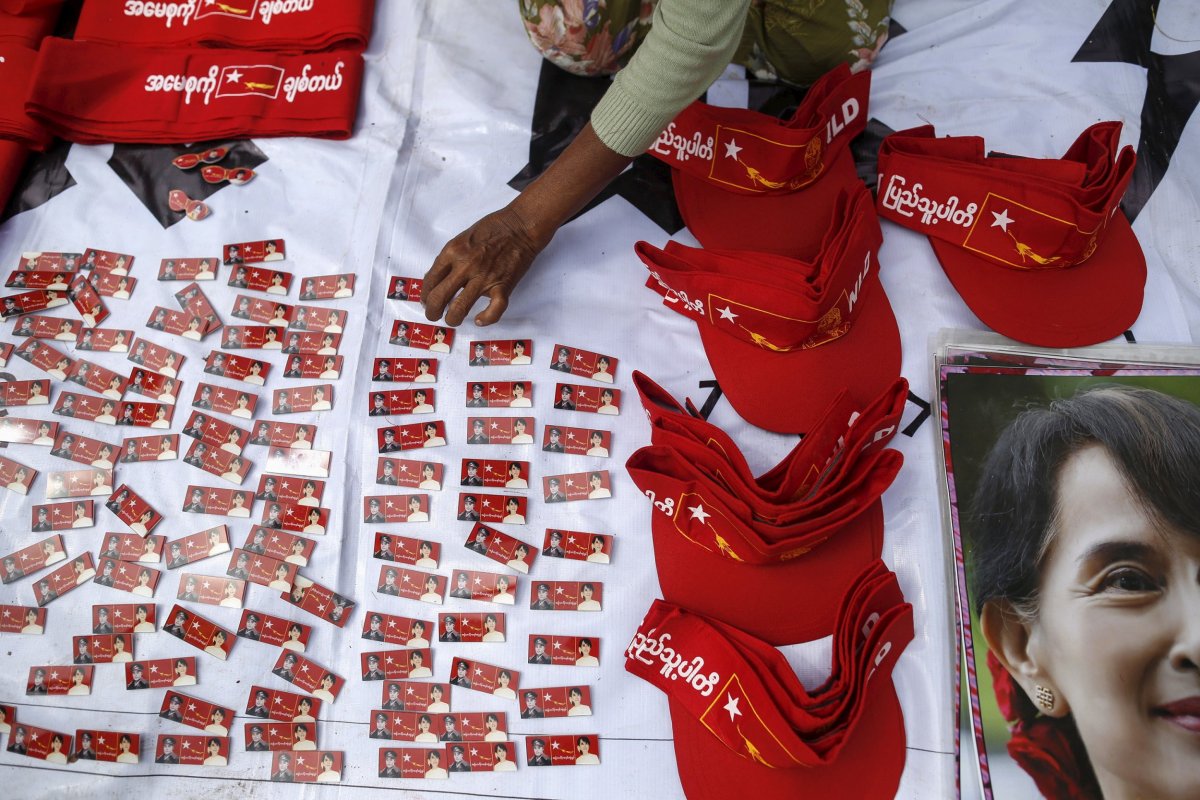
More than a week after Myanmar went to the polls in a historic general election in early November, ballots were still trickling in from the Himalayan foothills in the country's northern Kachin state—areas so secluded the trip could be made only by foot.
The fact these votes were cast and counted was a sign of progress in Myanmar, but it does not mean that all is well in parts of the country that have endured warlike conditions for much of the last six decades. Fierce fighting between the country's military and an array of ethnic armed groups, determined to retain arms, territory and a degree of autonomy, has left thousands dead and hundreds of thousands more displaced and disenfranchised. (These conflicts are one reason why Myanmar, also known as Burma, is among the largest sources of refugees to the United States.)
Living amidst the towering mountains of Myanmar's eastern Shan State, Father Mario Mardu, a local Catholic priest who works near the border with China, has little patience for talk of elections and peace. "I don't think the elections will change things here," he said a few months before the poll. "The [outgoing] government will surely lose, so they will create a problem, one way or another."
The resounding election victory of Aung San Suu Kyi's National League for Democracy (NLD) party surprised many observers. The NLD defeated not only the incumbent military-backed party but also parties that represent various ethnic minorities. Now those ethnic political groups worry they will have little say in future peace negotiations.
"Unless we end this civil war, there is no way to have a smooth and real democratization process," says Dr Lian Sakhong, a leading member of the ethnic Chin National Front.

One month before the election, Myanmar authorities announced with much fanfare they had reached a Nationwide Ceasefire Agreement (NCA). But it was only a partial success. After nearly two years of discussions between the military-backed government and a coalition of ethnic armed organizations, just eight of more than two dozen active groups signed.
"Peace Starts Now" was the headline emblazoned across one state-backed newspaper, but skeptics point out the Nationwide Ceasefire Agreement is a misnomer. "I think it's a symbolic victory at best, a PR stunt," says David Mathieson, senior researcher on Myanmar for Human Rights Watch. "The fact that there are so many groups still in active conflict reveals the weakness in both the agreement and the signing itself."
With so many groups involved, the acronyms alone can be confusing, let alone the politics. Among those that did sign was the Karen National Union (KNU), one of the oldest revolutionary groups in Myanmar. But among the holdouts were the powerful and influential Kachin Independence Army (KIA) and the United Wa State Army (UWSA).
The U.N. estimates that in the past four years over 100,000 people have been internally displaced in the regions where those groups operate, adding to the hundreds of thousands before them who have fled across the borders to Thailand, Laos and China.
In 1994 the military government wrangled a bilateral ceasefire with the KIA. Composed of mainly ethnic Kachin, they had been fighting for decades against the military. Following the ceasefire, the KIA complained that the military was making creeping gains in the region, and in 2011 the government issued an ultimatum to KIA soldiers to assimilate with the national army, known as the Tatmadaw. The KIA refused and fighting resumed.

The violence in Kachin is not just about ethnic tensions. A recent Global Witness investigation examined the multibillion-dollar jade trade in Kachin state, saying it was "tightly controlled by the same military elites, U.S.-sanctioned drug lords and crony companies that the government says it is consigning to the past." The report highlighted the role played by former military general and dictator Than Shwe, whose companies operate extensively in the region, making millions while next to nothing reaches the people of Kachin state.
"I am convinced that the Tatmadaw's continuing attacks on Kachin state and northern Shan, where there are a lot of Kachin, has to do with the economic interests and protecting the interests of Than Shwe," said Priscilla Clap, senior advisor to the U.S. Institute of Peace and former charge d'affaires at the U.S. Embassy in Myanmar from 1999 to 2002.
In northern Shan state, the United Wa State Army commands an estimated 20,000 troops. Having formed after the collapse of the Chinese-backed Communist Party of Burma, they are widely believed in Myanmar to be supplied and tacitly backed by interests across the border in Yunnan Province.
Shortly after the peace talks began, the United Wa State Army withdrew, instead forming a so-called Northern Alliance and wielding its influence to persuade several other groups to withdraw, according to Sakhong. "Their interests are linked, and everyone knows the Wa are the main provider of the arms and everything else, directly or indirectly for those groups," he says.

The Kachin Independence Army and the United Wa State Army both said they refused to sign the peace deal because of the exclusion of other small groups from negotiations.
The overarching problem is the lack of trust felt by the various ethnic minorities for the generals. As Father Mardu, the Catholic priest, put it: "The Tatmadaw say one thing and always do another thing."
Sakhong's answer to that: "The reason we signed was not because we trust them, but because we do not trust them."
The new government, which takes office in March, will have a key role in pushing forward some kind of dialogue. "The NLD should ensure the ethnic political parties who lost in the election will have some political space by reaching out to them outside parliament politics," said Sai Leik, spokesman for the Shan Nationalities League for Democracy, one of only two ethnic parties to enjoy moderate success in the election. "This way, democratic forces can counterbalance the Tatmadaw."
Several groups excluded from the agreement have already voiced a willingness to engage with Suu Kyi's government. The military will remain critical too, especially since they hold 25 percent of the seats in parliament under Myanmar's constitution. Since the election, Suu Kyi has held private talks with several big players in the military, including former dictator Than Shwe, but details of their talks remain unknown.
"They're going to have to work out some kind of modus vivendi and we have no idea yet what that's going to be," says Clap, of the U.S. Institute for Peace.
Sakhong hopes the issue will be part of backroom negotiations between the NLD and the outgoing military-backed government before March. "If we don't give [the Tatmadaw and outgoing government] space and a way out so that they can withdraw themselves with dignity, there can be problems," he said.
"If they do that well then [the ethnic armed groups] can work on this political dialogue with the NLD, the current government, the armed forces and the ethnic parties," Sakhong said. "And if we are all working for peace, then I think the country has a bright future."
Uncommon Knowledge
Newsweek is committed to challenging conventional wisdom and finding connections in the search for common ground.
Newsweek is committed to challenging conventional wisdom and finding connections in the search for common ground.
About the writer
To read how Newsweek uses AI as a newsroom tool, Click here.








